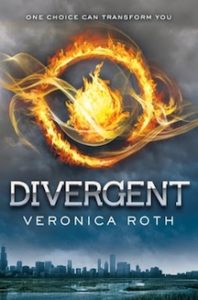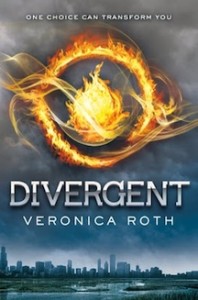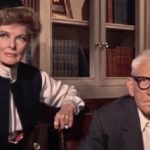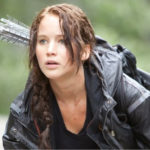Divergent, Great Stories, And Good Writing
This article contains * * * SPOILERS * * *
 I finally had the chance to see the movie Divergent based on the novel with that same title written by Veronica Roth. I’d talked to a number of friends about the story—both movie and book—and I had their critiques in mind as I watched Tris and Four and the Dauntless Faction prepare their newbies.
I finally had the chance to see the movie Divergent based on the novel with that same title written by Veronica Roth. I’d talked to a number of friends about the story—both movie and book—and I had their critiques in mind as I watched Tris and Four and the Dauntless Faction prepare their newbies.
Interestingly, I went to the movie with a friend who had heard no such critique and who also had not read the book. Afterward we talked about what we liked and what we found problematic. We both agreed we were glad we saw it, but also that it had flaws.
For one, there were places where the movie dragged. For another there were parts of the worldbuilding that seemed . . . odd, if not incongruent. Both those things seem like death to a story.
First, if a movie is dragging, it seems to me that’s a symptom that there’s not enough at stake.
During a different action adventure movie some time ago, I remember feeling really bored and checking my watch. There was one narrow escape after another, with bullets flying and cars blowing up, but there was no credible danger. So the next chase was like the one before it and they seemed to run together and drag out into an hour and a half long scene about which you already knew the ending.
In Divergent much of the focus was whether or not Tris would make it as a Dauntless. She was weak and one of the instructors had it out for her. But the possibility of her failing didn’t seem credible to me. The training was interesting and necessary because Tris built relationships during that time, and we as viewers got to know her as a character better. But as far as moving the story forward, the training sequence (most of the movie) didn’t do much.
Secondly, the worldbuilding proved problematic—more on reflection than during the movie. Why did the people take a test to find out what faction they should belong to only to be given the choice to choose the faction they wanted? And who made up that rule? Who determined they had to take a meaningless test?
Why did Tris’s mother know her daughter was Divergent and not just Dauntless as she had once been? If she’d turned out to be Divergent, that whole line of the story would have made much more sense. Instead, her admission that she had been Dauntless opened up the question about why she moved to Abnegation and how she retained her Dauntless abilities though she was apparently not Divergent. Following that line of thought, I had to wonder about the other new Dauntless inductees who also showed traits from their old factions.
Then there were questions about the factionless—were they all Dauntless wipe-outs or did other factions reject people as well? And why wouldn’t they be allowed to return to their old faction or to join a different one rather than become a blight on society and a drain on resources? It seems like a silly, arbitrary rule and there’s no hint as to who instigated such a harsh, purposeless, harmful concept.
Similar to that was the idea that faction is stronger than blood, though clearly in Tris’s family that wasn’t the case. Were they exceptions or did others not realize the strength of their family bond because they belonged to the same faction as their family? Oddly, none of the Dauntless members seemed to be in a family.
Despite these problems which were not exclusive to the movie, I understand the book series was one more hot story that had fans craving the next book and the next. Granted, though the first book opened as #6 on the NY Times best-selling list, it didn’t reach the stature of Twilight or Hunger Games and certainly not of Harry Potter. Still, it had a loyal and avid following, and I’m sure it is making Ms. Roth, her agent, and her publishers good chunks of change.
Why? Why did the story become so popular?
I think one element in Divergent engages the viewer right away: Tris doesn’t feel like she fits well. She sees herself as different from her brother and parents and drawn to several of the other factions. “Not fitting well” seems to be a universal for teens, and to be honest, many adults continue to struggle with fitting well. Some simply accept their “not fitting well” status and become content. Others realize they fit all along and their perceptions were off. Some find a group with which they fit—one they hadn’t discovered when they were younger. The point is, the dilemma Tris faced at the beginning—how to define herself and not knowing how or where she belonged—drew viewers in.
Presenting a character with a dilemma readers (or viewers) can relate to seems to be a great start for a story. Interestingly, the answer came fairly quickly—Tris was not one of the factions; she was the illegal Divergent. So how will she cope, where will she go to find a sense of purpose, can she keep her true self a secret—these and other questions drive the story.
I have to say, I think it’s a good story. All those fans were not flocking to the book simply because it was a hawt romantic triangle between innocent girl and bad boy #1 or bad boy #2.
But was it good writing? On the story level, I don’t think so—not with the worldbuilding problems or with the low stakes. Good writing wouldn’t leave you with so many doubts about the plausibility of the story when you’re finished.
Good writing would also create a greater sense of tension and urgency throughout—not just for the main character, but it starts with her. Perhaps the book did a better job here than the movie, but I’m left wondering, what’s the worst thing that would happen to Tris if she doesn’t make it in Dauntless?
We’re told she’d be Factionless, but why that’s so bad isn’t shown. Not really. Not in the movie. To me the Factionless looked like poor people sitting around with nothing to do. I can’t help but wonder, why? Why couldn’t they make their own Faction and find purpose? I mean, there are more than five character traits in the world. But that’s beside the point.
Rather, being Factionless didn’t seem like the end of the world, maybe because I wasn’t sure what Tris wanted from life. As a member of Dauntless, she’d be tasked with policing the city. Was that what she wanted from life? Or did she simply want to avoid being discovered as a Divergent? But even that purpose doesn’t come with high stakes. If she’s discovered to be divergent and killed, she will die and that would be sad, but what does that outcome mean? People die every day. Why should readers and viewers care about the death of this one person? I think the stakes need to be higher.
And I haven’t addressed other aspects of good writing, which is just as well since I haven’t read the books. Perhaps some of the rest of you can weigh in on whether or not you think the writing in Divergent on the sentence and paragraph and scene level is good. Were there interesting descriptions? Fresh metaphors? Poetic expressions? Quotable lines? Looking forward to your thoughts.












































These are great observations and ones I wholly share with you. Since I make my living critiquing about 200 manuscripts a year, I too was very amazed at the success of this book that has a lot of structural problems. The visible goal for Tris was never clear, and the complication that leads to the actual “main plot” doesn’t occur until way into the book, almost as a side plot that becomes the main plot point (the scheme to use Dauntless to engage in “genocide”). I found, as did others I spoke with who had read the whole series, that the world Roth built was not very believable or logical, for the reasons you voiced. Thanks for exploring this story.
Thanks, C. S. I had to dig a bit before I understood why the story became so popular, but once I realized it was about finding a place to fit, it made perfect sense.
But I honestly wonder if that was Veronica Roth’s intention. As you noted, the story changed in the middle and the greater issue—the conflict among factions and the use of the Dauntless members as mass assassins—diverged (pun intended – 😉 ) from that “fitting well” theme.
But I think it was the latter that captured readers. I doubt if the series would have become so popular if it hadn’t first been about Tris trying to find herself.
Becky
Thanks, Becky. I agree. I imagine if an author puts that “finding oneself” as the core of the novel, the rest of the plot structure isn’t as important for that YA audience. So long as there is some romantic tension and sections of danger, it will probably go over just fine 🙂 Some of us readers and authors prefer a really tight, well-constructed story and world though 🙂
So did you just hit on the formula for a successful teen novel? Finding self+romantic tension+danger=mega best seller? 😉
But yes, readers who want more are looking for a well-structured plot and a world that makes sense. In the end, I think there should be a way to engage teens and still write a good story. But I wonder if publishers are so eager to find the “next Harry Potter” blockbuster, they’re looking past the things that make a story bigger than a fan-crazed experience.
Becky
Have you read all 3 books? (I have.)
***SPOILER***
Tris’ mother IS divergent.
In fact, all of the questions in your 8th & 9th paragraphs are answered by the 3rd book, “Allegiant.” I know its frustrating going to the movie (knowing that that may be the only one in the series that you see) and not having all of these questions answered.
Maybe the movie makers should have thought about incorporating some of the answers to those questions for the benefit of the audience. That would have made the story more complete.
But, I agree that the stakes don’t seem as high throughout the story. Even in the books, a sense of urgency is lacking. It seems like the factions are struggling for power among themselves, but with no real cause.
***SPOILER***
…Then they find out they are all an experiment by the US government.
It’s kind of like when a writer starts a story in the middle of a character’s dream, and then the character wakes up and the reader feels cheated.
Except, in Divergent, the dream lasts for 2 and a half books.
Daniel, I haven’t read any of the books—only saw the movie.
Thanks for giving your spoiler alert, which I’ll repeat: * * * SPOILERS * * * I’ve talked with friends about the book and knew that the third one gave the explanation for the world as an experimentation. What I don’t find satisfying, but might if I’d read it, is that the first people went along with the rules the experimenters set up but didn’t pass on to the next generation what was behind what they were doing, or that subsequent generations didn’t themselves come to question these rules. Obviously they were capable of turning against authority, so it seems hard to imagine that they wouldn’t at some point turn against these arbitrary and unreasonable aspects of their society.
That being said, I did not know that the mom turned out to be Divergent. That’s as it should be. Now I wonder why she didn’t just come clean with Tris, but maybe that’s also explained in the third book.
One thing I neglected to mention in my article which I also thought was a strength is the thread of sacrifice that seems pretty strong. I thought there was a turning point for Tris, first when she didn’t forgive her friend and he committed suicide, then when she fell in love with Four. But of course, it wasn’t just Tris who was willing to sacrifice.
Anyway, I appreciate your remarks, Daniel.
Becky
After The Hunger Games I have never been interested in another “post-apocalyptic” or “dystopian” stories as a rule. More of them seem to be capitalizing in the kind of “suffering glamor” that enables middle-class people to think of themselves by proxy as Victims of Society. Similar to white kids liking “dystopian” rap in the 1990s, methinks.
Also if the world is in a sorry state, why then you get to have Love Triangles and perhaps illicit sex, which is always helpful.
I know, I’m grumping. There are many good reasons to appreciate dystop./P-A stories.
Anyway, the above criticism is too substantive. Here is one purely of style, because it turns out that Divergent Dolls are a thing. On April 11 I took this photo and thought, “I guess we deserve this.”
Stephen, I don’t know about a lot of other dystopians. I know the ones that got the most press, but I don’t generally follow YA literature. But I really enjoy dystopian stories. Some of the Christian dystopian (Jill Williamson’s Safe Lands series, Evan Angler’s Storm, et. al.) have been some of the best books I’ve read recently. I think it takes some insight and creativity to project into the future what might be—whether technology, societal changes, government developments.
When I was young, Brave New World and 1984 were some of my favorite books, though they ended so badly. It was hard to be so invested in characters only to discover that the hope I thought they had would not pan out. Apart from that, they were great! 😆
I think this “no hope” aspect of much dystopian is why it seems to have run its course in the general market. Especially after the third Divergent book, fans seemed done with endings that aren’t what they wanted. You know, the fairytale endings. We all really do want to live happily ever after.
Becky
I have read the whole series, and my take is basically this:
Loved Divergent. I was fine with questions not being answered and people not being who they seem. I think it’s par for the course with series to do that. If everything makes 100% sense in the first book and all questions are answered, then why write further books?
Liked Insurgent. Not as well-written, kinda chaotic story line, felt mostly like a bridge between the first and third book. Don’t actually remember a lot from that one.
HATED Allegiant. The science alone made my head nearly explode. I have a degree in Biology, my favorite subject was genetics. The premise behind the factions is so freaking backwards. The scientists themselves were so poorly characterized. The writing itself turned to mush–I could never tell the difference between Tris and Tobias’s voices. Lastly, it was *preachy*…but I could never quite figure out what the message was supposed to be.
Kat, good point about the series. We do read with the knowledge that not all will be revealed in the first book. And while I was watching the movie, most of my questions didn’t really bother me.
All the rest you said about the series reinforces my thought that perhaps Veronica Roth didn’t really have in mind where the story was going or why. I’ve read wandering stories before, usually from seat-of-the-pants writers who didn’t take time to go back and work on the story once they knew what it was about. They simply let the wandering stand and didn’t work to make logical sense of all parts of the story.
I know Divergent sold well, and it’s been made into a movie and all, but I can’t help but wonder how much better, how much more popular it would have been had the editors or Veronica Roth herself cleaned up the problem areas.
Was her agent, were the editors just so enamored with the idea of the “next hot dystopian” or with the sure teen hook that they didn’t think they needed to work out the kinks and bumps and potholes? I’d love to know.
Becky
Kat, I agree with EVERYTHING you said! The first book was easily my favorite, second book was… okay. But I couldn’t even get through the third book, unfortunately. Then I looked up the reviews of Allegiant, and after seeing what happened, decided it wasn’t worth my time to read. 🙁
Sarah, I *forced* myself to read the whole thing because I’d paid for it–like $10 on Nook–and was not going to not finish it for that price. By the end, if had not been on my Nook, I’d have thrown it across the room.
I thought the initial premise was good, and I’m glad that the romance element wasn’t hyped as much as Hunger Games, but the only new dystopia I’d read is one where a family topples it.
A father protecting his child, a husband protecting his wife, siblings–ANY family combination bringing down a dystopia. Not some star-crossed lovers or restless teens, but mature, responsible adults.
Interesting thoughts one and all. I have read Book 1 & 2 and liked them both, but I can’t bring myself to read Book 3 after I hear all the disappointment people have felt.
**SPOILER**
I too was about to say that Tris’ mom IS divergent but got beaten to the punch! The one thing I really loved about Divergent that I don’t see much in other dystopian stories is how the love of family played a big role.
With The Hunger Games Katniss’ dad was dead, her mother checked out, and Katniss was forced to grow up too fast, or die. I get that, and it’s believable on some levels, but I enjoyed seeing Tris’ mom especially step up and protect her daughter (rather than the other way around) and…
**SECOND SPOILER ALERT**
I was so disappointed when her mother died. I would’ve loved seeing mother and daughter fight the evil together. But alas…
To quote Stephen: “More of them seem to be capitalizing in the kind of “suffering glamor” that enables middle-class people to think of themselves by proxy as Victims of Society. Similar to white kids liking “dystopian” rap in the 1990s, methinks.
“Also if the world is in a sorry state, why then you get to have Love Triangles and perhaps illicit sex, which is always helpful.”
Yes, I think those things are what people like the most about many stories. What I’ve noticed about the wildly popular books that have flown off bookshelves lately is that they are, as Rebecca pointed out, structurally deficient.
My theory is that we, as writers and editors, are hypercritical of books. Call us book nerds, if you will. The average reader couldn’t care less.
I agree this is weird. My dad’s suggestion was that they may be two traditions from different times. This could be possible. So, for example, the idea of choosing came first, and became an integral part of their society. Then, at a later date, the test came in – but because it was so ingrained in society, you still had to be allowed to ‘choose’.
Still leaves a load of questions, though…
I do like the book, and plan to get the others. The illogicalities are frustrating, but I can live with them!
I haven’t seen the movie, so my comments are based on the book.
First, being Factionless is so bad because you have always been taught that it’s a fate worse than death. Your whole worldview revolves around this – if you don’t belong to a Faction, you are nothing. Everything – even how you dress – is based on your faction. You can tell what everyone is at a glance by their clothes (not sure if this is as clear in the movie – doesn’t look like it from the photos).
Your Faction is your identity. Stronger even than family. You have always been taught that the only way to be part of a community is to belong to a faction. To be Factionless would be a bit like being a stateless orphan today – maybe worse. They belong nowhere.
On top of which, people become Factionless by failing or dropping out of initiation. So everyone is there as a result of personal failure. And no-one wants that.
They don’t have nothing to do, but they are only allowed the most menial jobs. The compensation for this is not enough to live on, so they have to rely on charity. As your job is dependent on the faction you’re in, you have no choice in this. I suppose it’s a bit like the old Indian caste system. Just like an ‘untouchable’ in that system – or, indeed a black person under segregation or apartheid – had no choice. Of course in these real-life instances things could and did change, but it took major social and political upheaval.